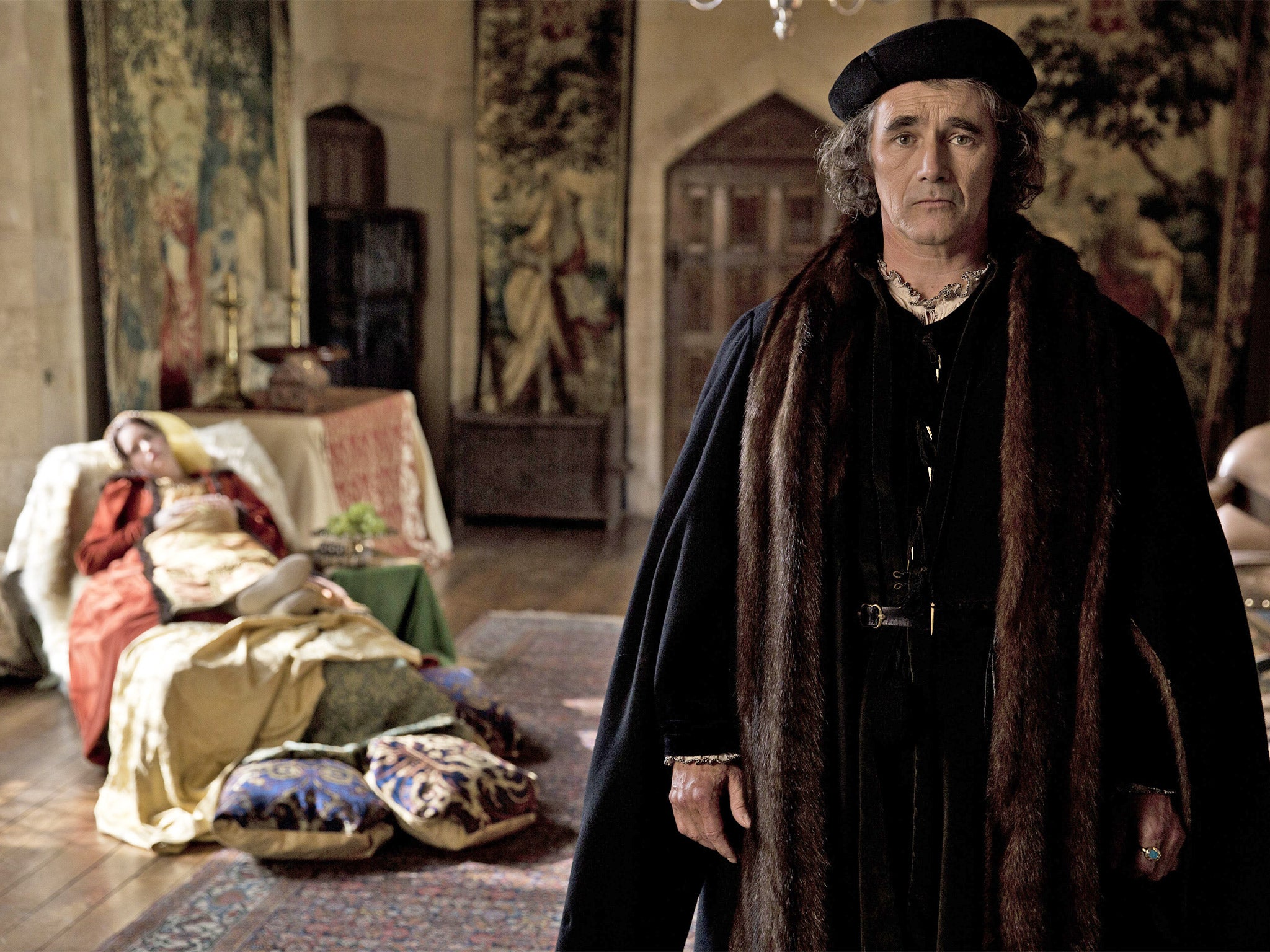Wolf Hall review: An imperious Mark Rylance revels in darkness in Hilary Mantel adaptation
It will struggle to match Julian Fellowes’ blockbuster for impact but six hours of Rylance ought to secure a devoted following

In just under six years since its publication, Wolf Hall – Hilary Mantel’s Booker-winning tale of Thomas Cromwell and the court of Henry VIII – has spawned a sequel, another Booker prize for that follow-up and a double-billed hit at Stratford and the West End.
Little surprise then, that television hasn’t been able to wait for this year’s likely publication of the final Cromwell book, The Mirror and the Light, before adapting Wolf Hall and Bring Up the Bodies for the small screen.
A good job, too. For those not blessed enough to have caught Mark Rylance on stage – he’s been absent from British theatre since 2013 – this was a rare(ish) chance to catch one of Britain’s finest actors on the screen.
Rather than being a screen adaptation of the Royal Shakespeare Company’s Wolf Hall/Bring Up the Bodies, Peter Straughan’s script goes back to Mantel. The writer has suggested that he used The Godfather: Part II as inspiration for the time-jumping explanation of Cromwell’s backstory in this expository opener. Why not aim high? Despite the heavy lifting required by the script, Rylance, working with Peter Kosminsky again – the pair both picked up Baftas for The Government Inspector – is already imperious, his Cromwell a broody viper of a man. Here, he takes in a round of miseries, including the deaths of his wife and daughters and the defenestration of his boss and mentor, Cardinal Wolsey (a smoothly acidic Jonathan Pryce).
The hour acts as the genesis tale of his Robert Moses-like ascent to power at the side of King Henry VIII (Damian Lewis, who only appears here briefly). The slightly club-footed flashbacks to abuse at the hands of his father do the job of explaining the defensive wall between Cromwell and the world, but Rylance’s skill is such that even as he keeps a straight face at the death of his family you can almost see Cromwell’s pain perspiring. This is a taut, gloomy production, one that’s (obviously) a leap away from the aesthetics of the most recent Henry TV drama, the glossy The Tudors. Lewis’s Henry may be as bright and bulbous as a Holbein portrait but Cromwell wears the sombre black of an acolyte.
For those who’ve not swallowed the 1,104 pages of the books, this opener might have proved puzzling, even though Straughan’s dialogue is fairly surgical. The House of Cards-like scheming of Cromwell, Wolsey, Stephen Gardiner (Mark Gatiss) and the Duke of Norfolk (Bernard Hill) is testy but not yet captivating.
British costume drama, especially in the US, often gets too fair a crack of the critical whip, its stodginess forgiven because of the accents and costumes. Just look at the baffling popularity of Downton Abbey. It and Wolf Hall share a US home in PBS’s Masterpiece strand – an indication of the latter’s ambition. It will struggle to match Julian Fellowes’ blockbuster for impact but six hours of Rylance ought to secure a devoted following.
Join our commenting forum
Join thought-provoking conversations, follow other Independent readers and see their replies
Comments
Bookmark popover
Removed from bookmarks